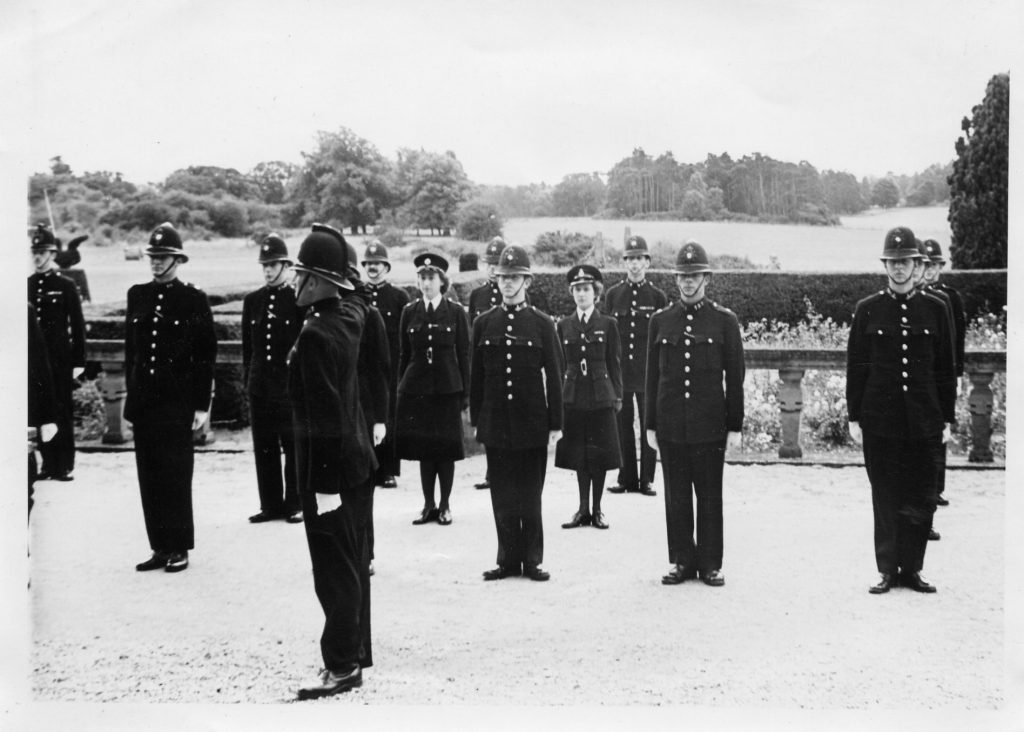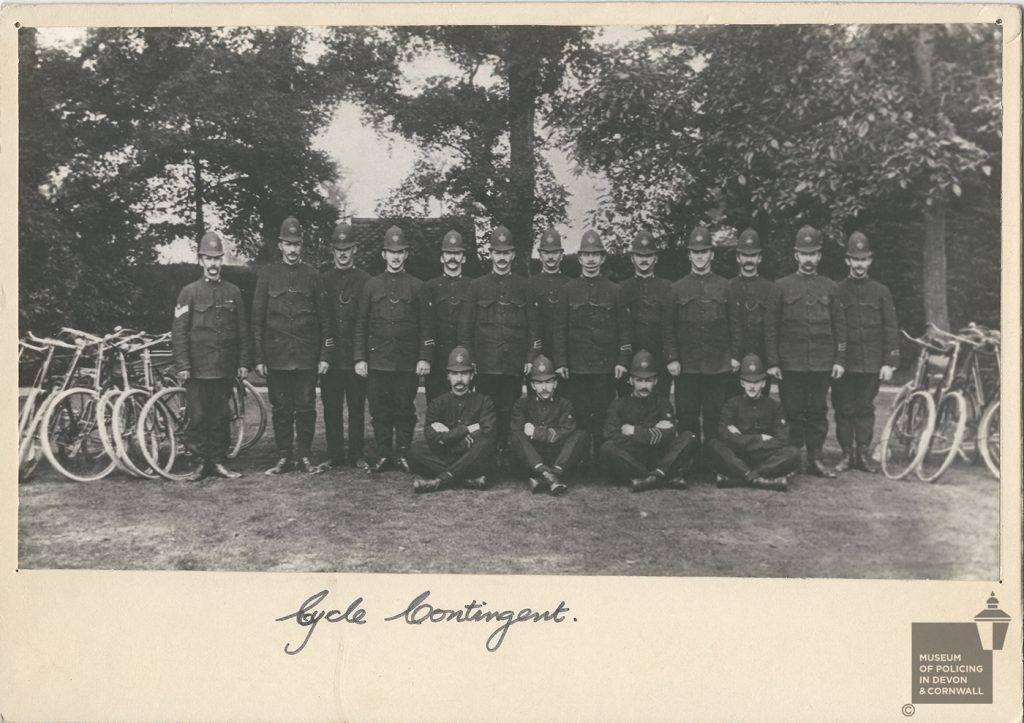The Museum of Policing in Devon and Cornwall is a registered charity that collects, preserves and celebrates the history of policing in Devon and Cornwall. The Museum holds a kaleidoscope of historical policing material including documents, photographs, and artefacts, and provides an in-depth array of material tracing the social history of the region spanning over two centuries.
We exist to ensure the policing heritage of Devon and Cornwall is made accessible and preserved for posterity. We support researchers, genealogists, educational institutions, and heritage organisations across the region to engage with policing history. The Museum was established in 2016 as a charity and is governed by a Board of Trustees. Find out who is in our board and team. Find out about our volunteers here.
We tell stories
With centuries of content to work with the Collection is a treasure trove of hitherto untold stories. Thus the Museum’s main job is public engagement and we deliver that through real-world exhibitions plus an ongoing programme of digitisation. The Museum has two dedicated websites to house materials we can make available to Museum Members and the public respectively.
Explore our catalogue. and our interactive story-telling blog site at https://dcpolicingmuseum-mercury.cortes.websds.net/


In addition, Museum Members can access the Museum’s digital archives. The digital archive houses a growing selection of scanned content drawn from the catalogue, all fully searchable by keyword from the comfort of your smartphone or tablet. Members can access by logging in at https://dcpolicingmuseum-archive.cortes.websds.net/default.aspx
If you are interested in joining the Museum Members scheme (presently £24 annually until end of March 2025) please see more details at https://membermojo.co.uk/mopidac

